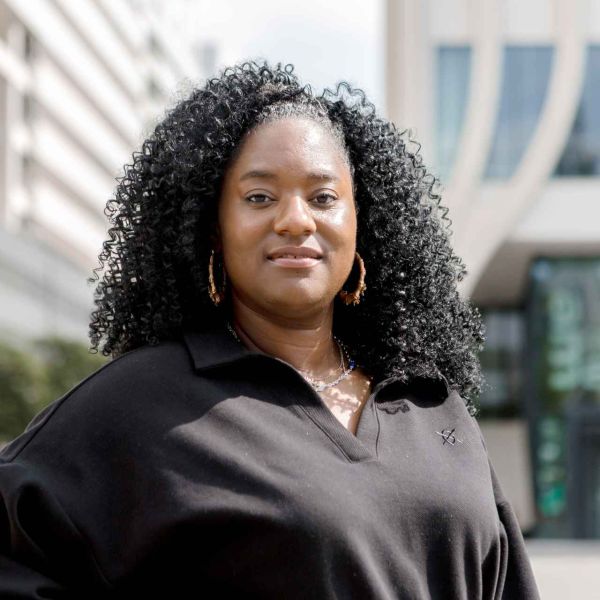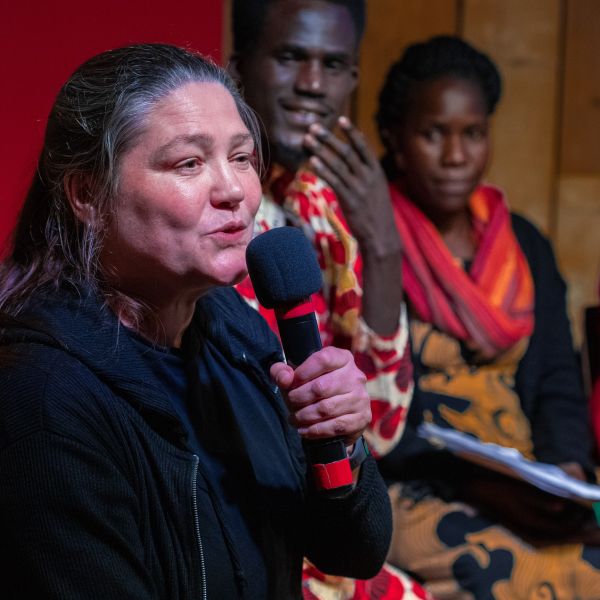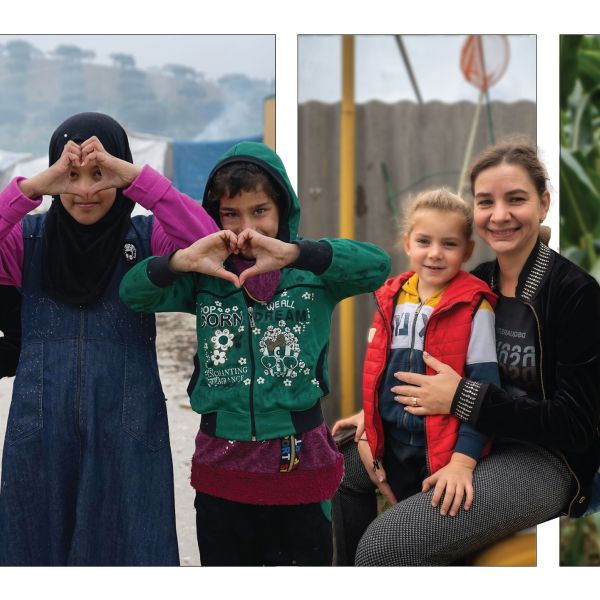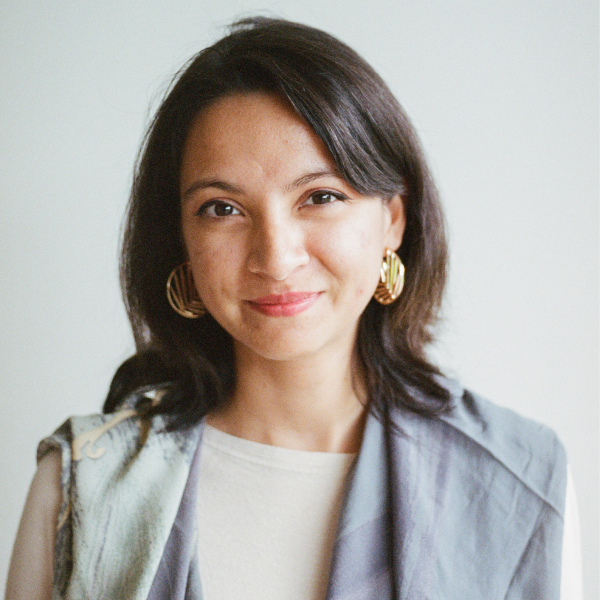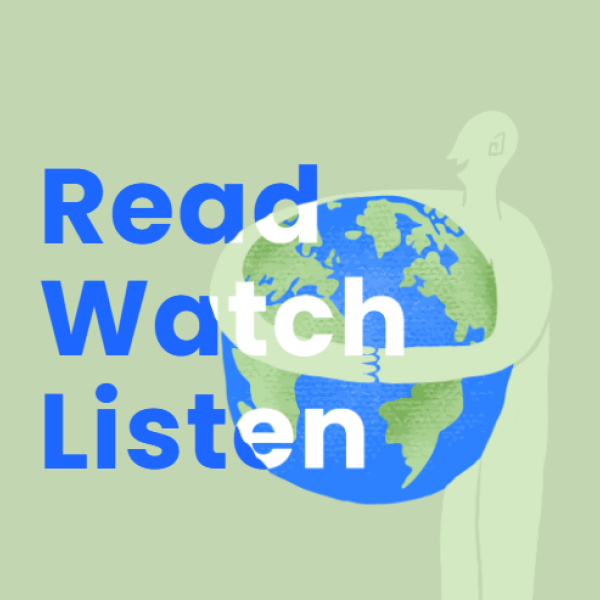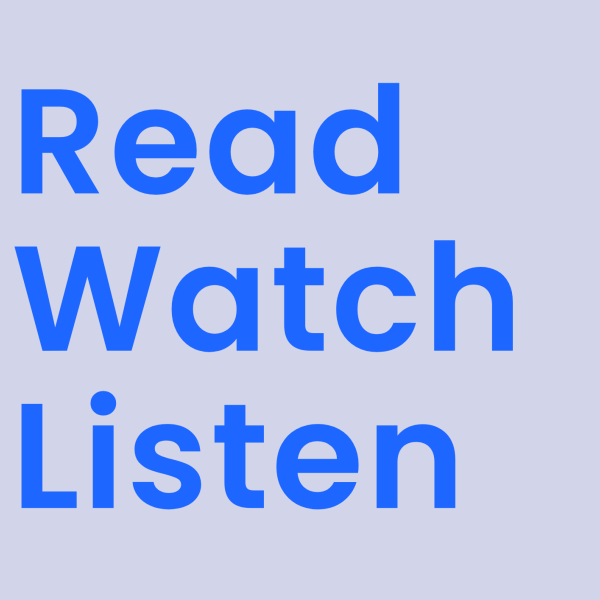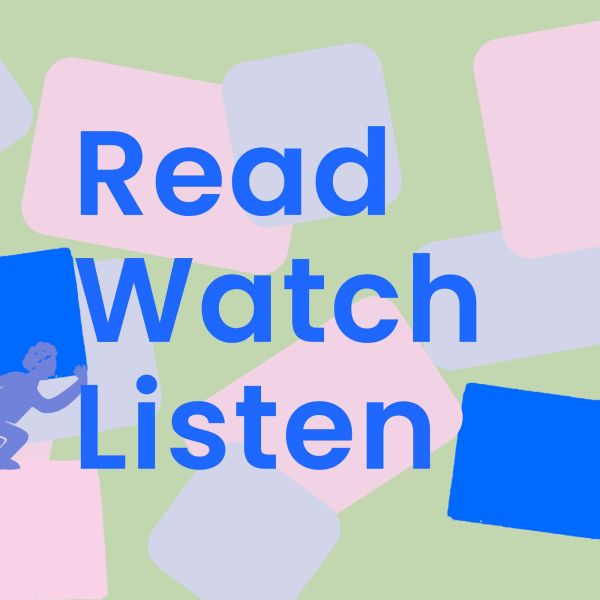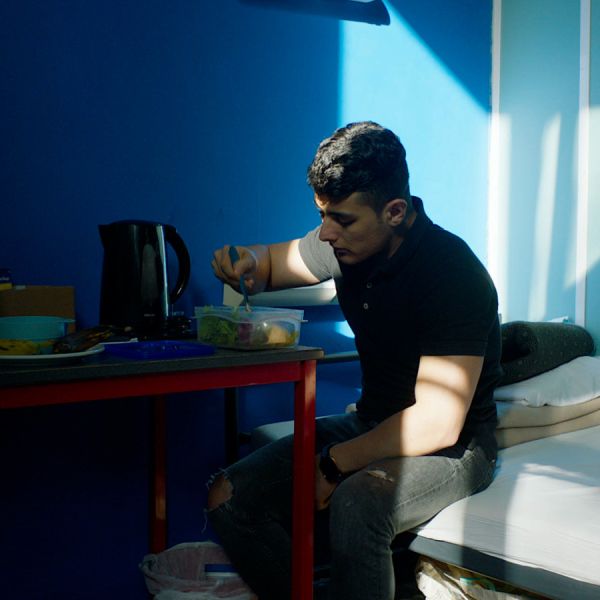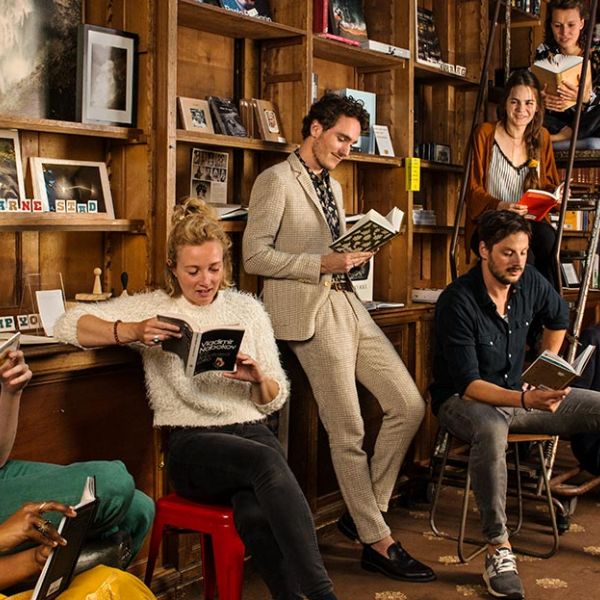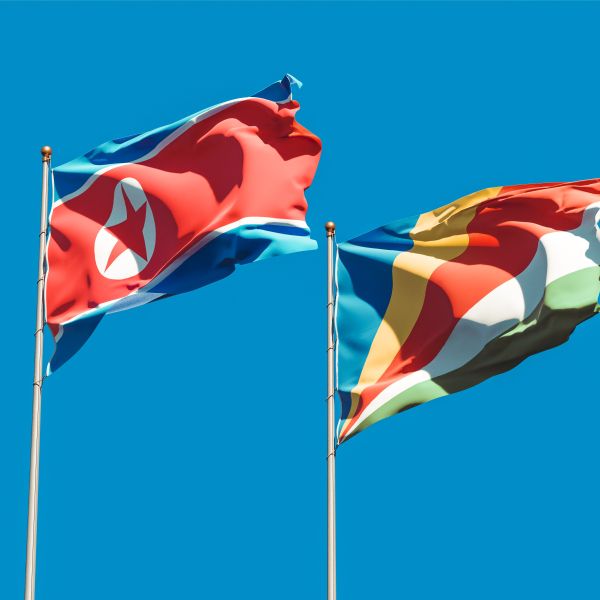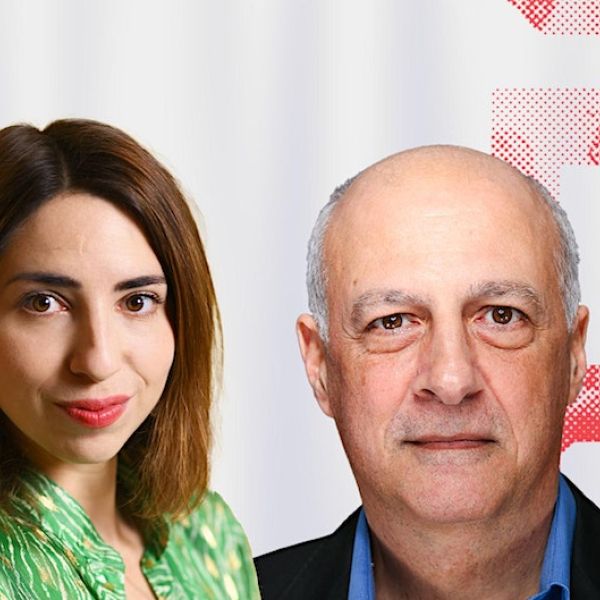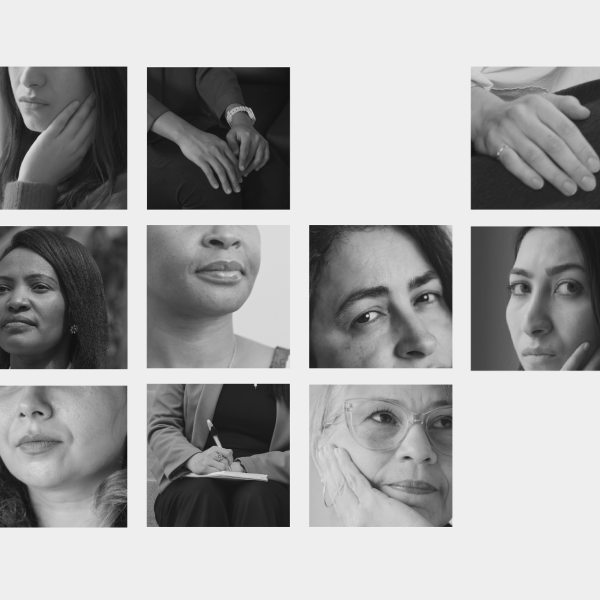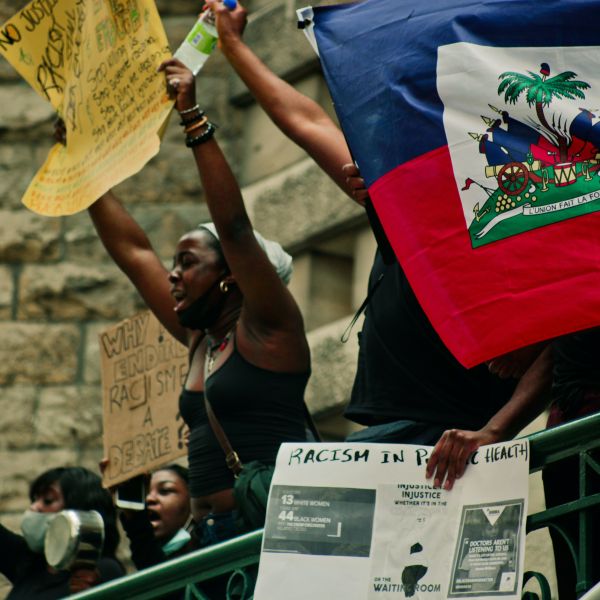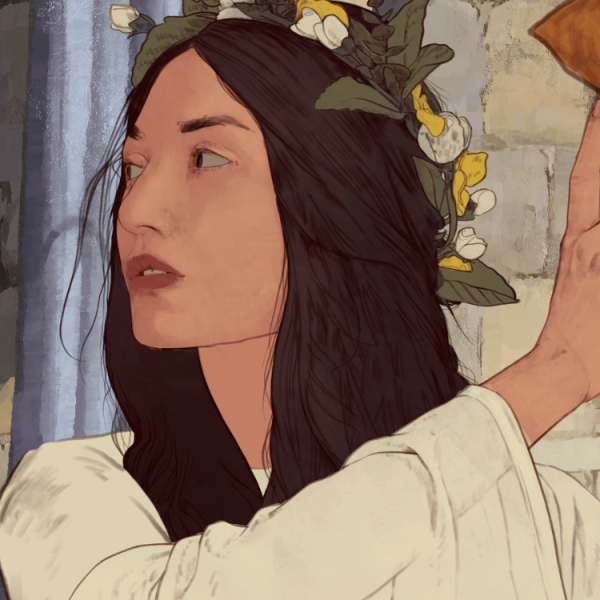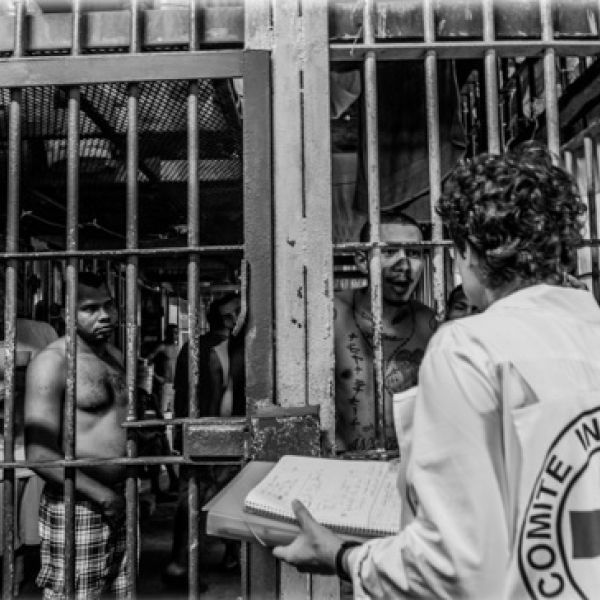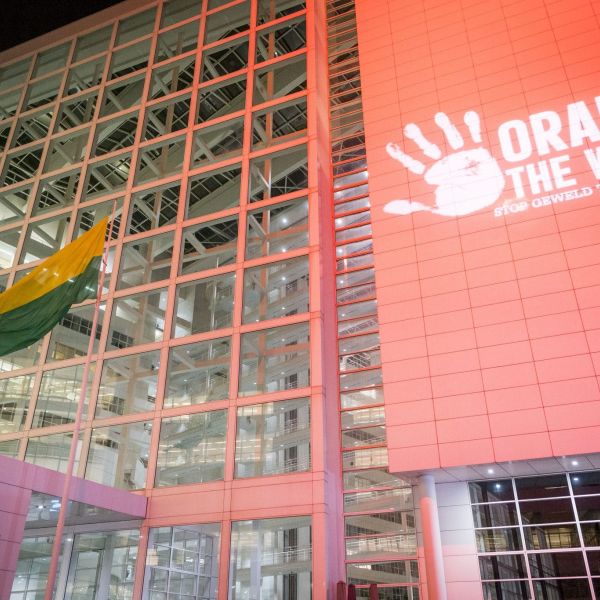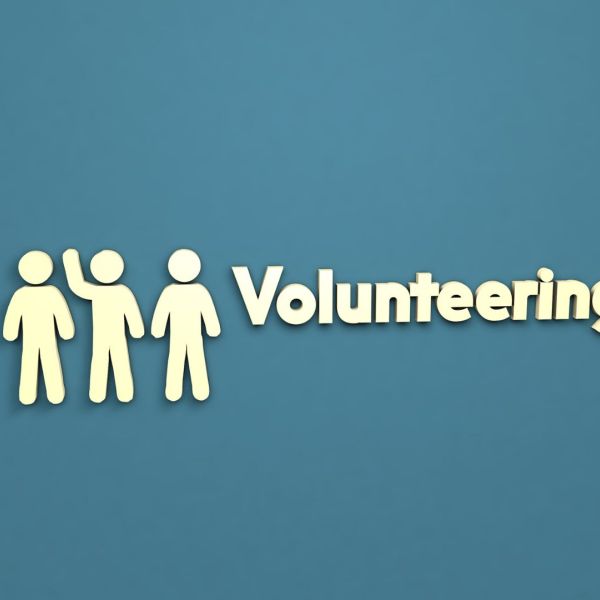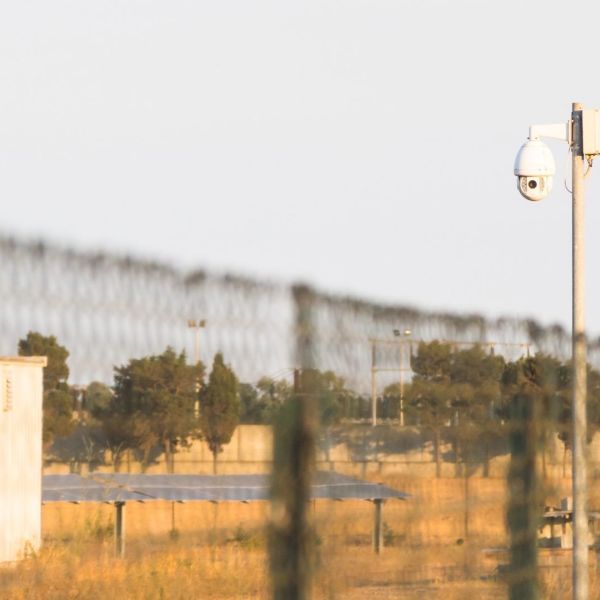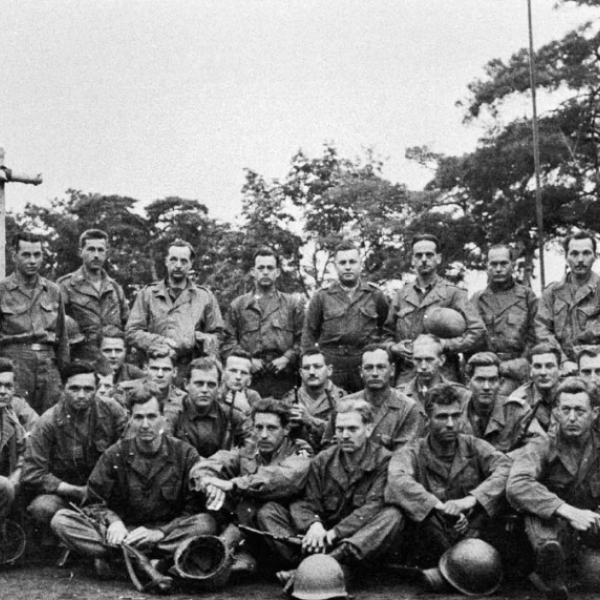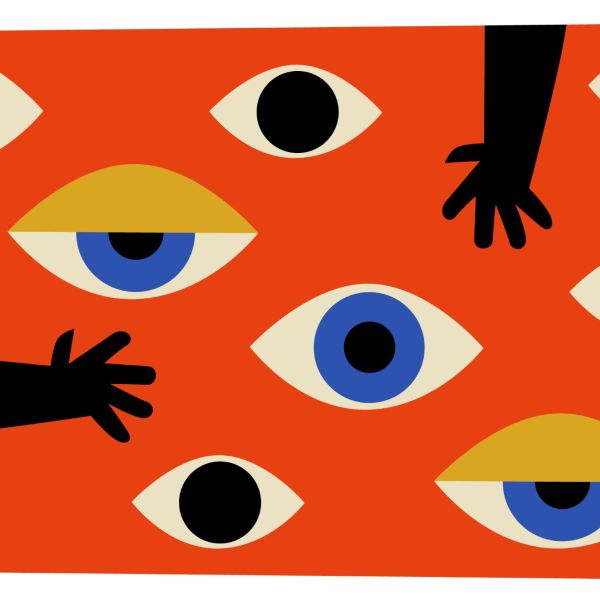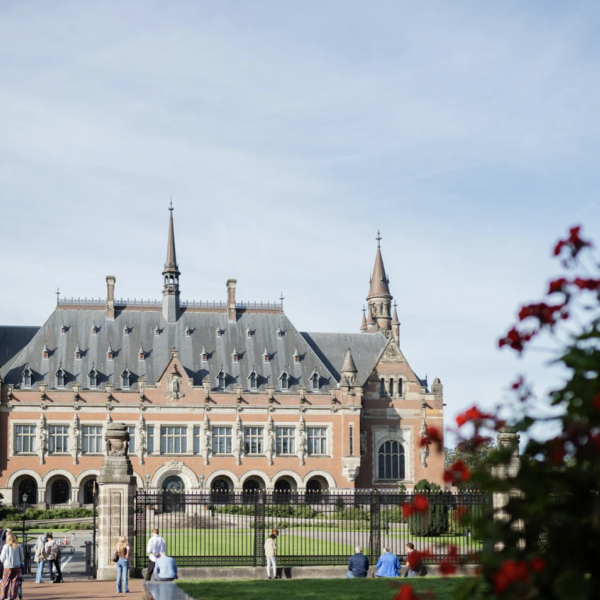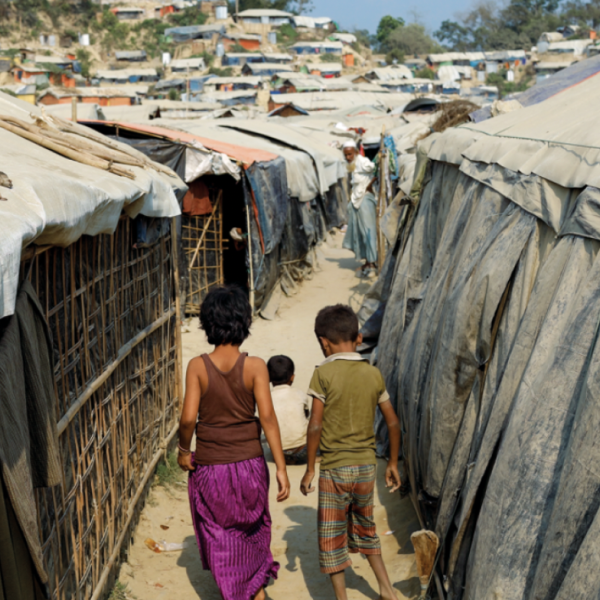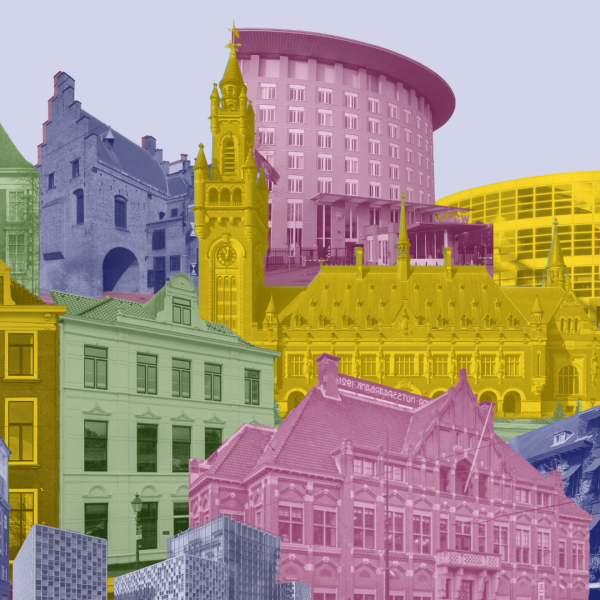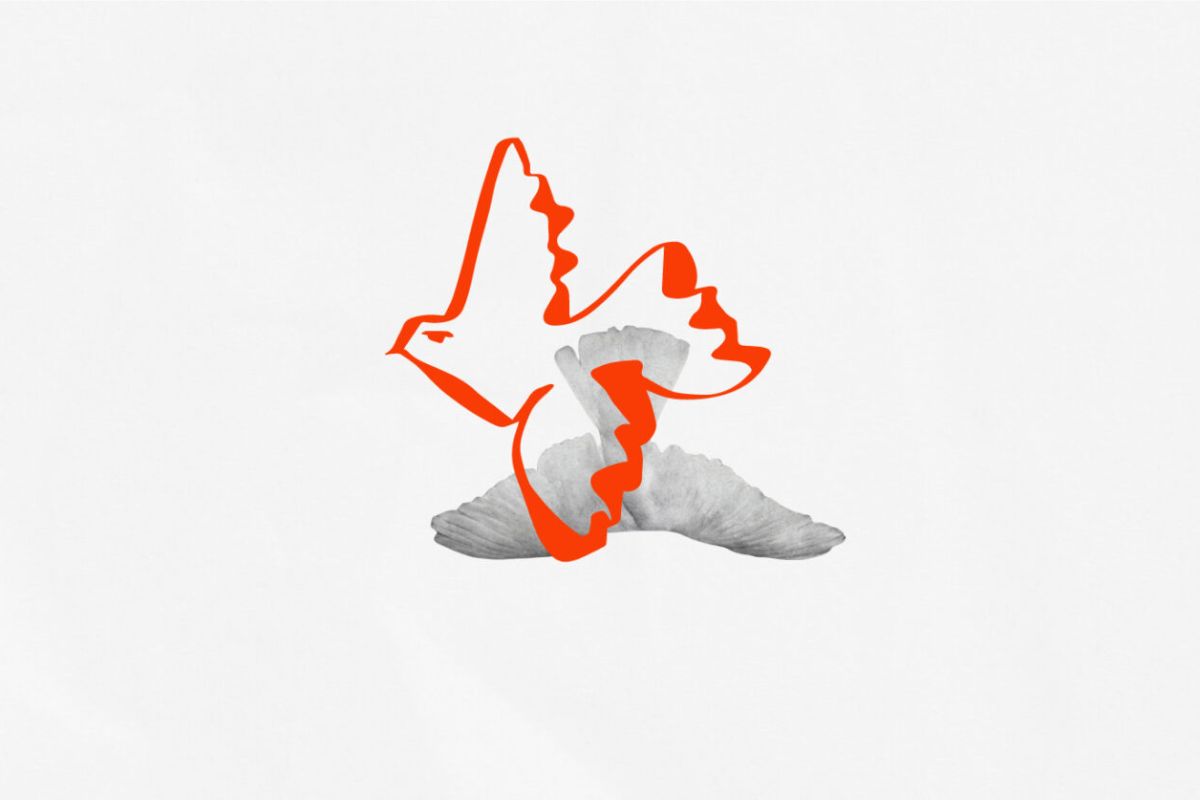
Rolien Sasse from PAX: "We are the bridge builder where possible, but the activist where necessary."
In honor of Peace Week and the International Day of Peace, we spoke with Rolien Sasse, the general of PAX. This year, PAX specifically focused on the theme 'Democracy under Pressure' during Peace Week, as they are concerned about the growing polarization and loss of trust in society, not only globally but also in the Netherlands. "If you encounter someone who is very different from you, try to be curious. Instead of immediately forming a judgment and excluding someone."
For those people who don't yet know PAX and will be reading this, can you give a brief description of yourselves and the work you are involved in at PAX?
"We are a Peace Organization that has been around for 75 years now. We carry out programs to bring about peaceful societies and protect civilians from the effects of war. The programs are mainly in countries where there is also war or has been war recently. Depending on what status the country is in, our work can be more focused on getting peace done, protecting civilians when there is an active war going on, or more focused on trauma treatment and restoring trust in society. We work a lot in the Middle East, Central and West Africa, Ukraine and the Balkans. So exactly what we do depends very much on the country, and we listen very strongly to victims and civilians. We work with local partners, activists and civil movements, and they tell us what is important to them. As a result, when we talk about such a country in the Netherlands, we can do that based on the stories that people tell us.
Despite the fact that the Netherlands is a peaceful country with a democracy and rule of law, you feel that things are slowly shifting. Several PAX international staff also say, 'gosh be careful, because I recognize here what happened in my home country as well.' You have to be there early. The earlier you are there, the more you can adjust. Whereas if at some point it escalates, it's hard to go back to how it once was. That is why we think it is important to put this subject on the agenda and to enter into dialogue with each other."
Peace Week is organized every year. This year's theme is "Democracy under Pressure," why is this theme so important in today's social context?
"So most of our work takes place outside our national borders, but we also believe that the Netherlands should be a peaceful and inclusive society. We always thought so, but this year we were extra concerned about the hardening in society. You notice that many people are losing trust in the government and in each other. Social media contribute to us living more in our own bubbles, so that different groups of people don't really meet or talk to each other anymore. In doing so, the danger is that you start dehumanizing the other and making assumptions about large groups of people. Whether you're talking about the "wappies" and the farmers, the climate activists, the left or the right; we're pretty quick to classify each other into certain groups. The compassion and curiosity seems to have almost disappeared in the debate. We find that a worrying development because the moment you no longer look at each other with compassion and openness, the problems you have with each other can no longer be solved. There are always opposing interests, but in this way it becomes increasingly difficult to find solutions to them."
The compassion and curiosity seems to have almost disappeared in the debate
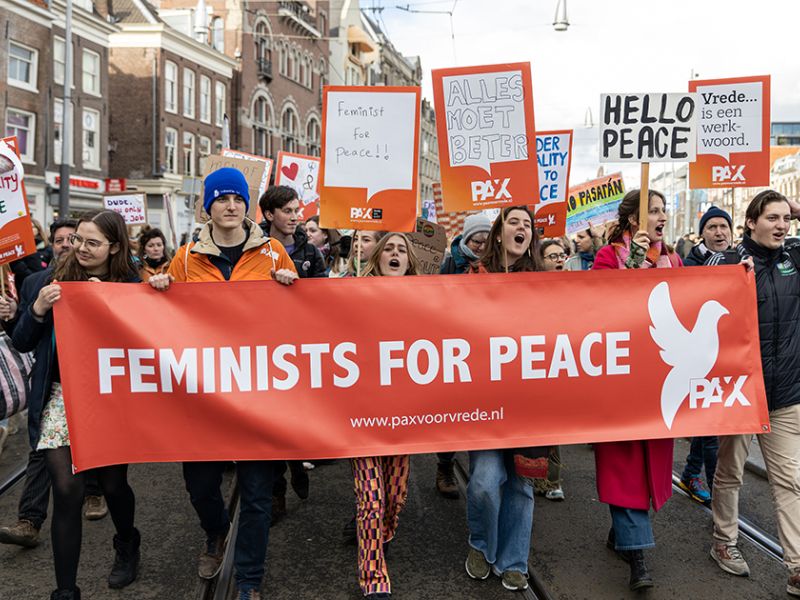
"Despite the fact that the Netherlands is a peaceful country with a democracy and rule of law, you feel that things are slowly shifting. Several PAX international staff also say, 'gosh be careful, because I recognize here what happened in my home country as well.' You have to be there early. The earlier you are there, the more you can adjust. Whereas if at some point it escalates, it's hard to go back to how it once was. That is why we think it is important to put this subject on the agenda and to enter into dialogue with each other. The moment groups in society are excluded and not treated equally, dissatisfaction arises. And discontentment that simmers for a long time can eventually escalate. I really don't want to say that a war is about to break out, absolutely not, but you do notice that there are groups that feel excluded and then withdraw into their own groups. This is how people come to oppose each other."
Can you give specific examples of these pressures and why do you think these challenges are occurring right now?
"Many people remember PAX from the Cold War period where we played an important role in the nuclear weapons debate. Then came a period when many people felt that poverty and conflict was something that happened in "distant lands. We in Europe went through a long period of a lot of economic prosperity and peace, which also makes you feel at a certain point that the country is "finished. Whereas, what happens elsewhere in the world also affects us. We are not immune to that, nor are we different from other people.
If you look at all the crises we currently have in the Netherlands such as the gas extraction in Groningen, the allowance scandal, our right to demonstrate, rights of people from other countries, discrimination, etc. All these themes are emerging and slowly nibbling away at our rule of law and democracy. I think that is precisely the foundation that makes us feel so safe in our country and what we must therefore protect."
What do you see as a blind spot or something that is often forgotten when working for peace?
"What is characteristic of PAX is that on the one hand we take the role of dialogue and bridge-builder but at the same time we also look at whether people are oppressed and whether inclusive peace is possible for the people in a specific area. Indeed, sometimes dialogue is prevented because there is abuse of power and oppression. At times like that, we are more activist. You always try to engage in dialogue first, but you cannot always help people just by talking, especially when people are violently attacked. You also have to speak out at times like that. That's where I think we are special, that we don't just choose dialogues but also look at how to be activist. You cannot be neutral if there is an abuse of power or inequality. The bridge builder where you can, but the activist where you have to."
What does PAX hope to achieve with Peace Week, and how do you think it contributes to promoting peace and inclusiveness in society?
"For us, on the one hand, Peace Week is the celebration of peace and to celebrate it with each other. At the same time, it is also a time to interact and meet with each other. We have different embassies of peace and different activities like in The Hague, the peace march. So there are all these local groups in different places in the country organizing their own activities. I really like that because it means that there are actions coming from people themselves in which they are working together and talking to each other. Spreading that like a snowball effect is actually why Peace Week was ever created. We ourselves have our event of 75 years of PAX but much more important are all those activities taking place throughout the country and mobilizing people and making them think for a moment about peace."
You always try to engage in dialogue first, but you cannot always help people just by talking
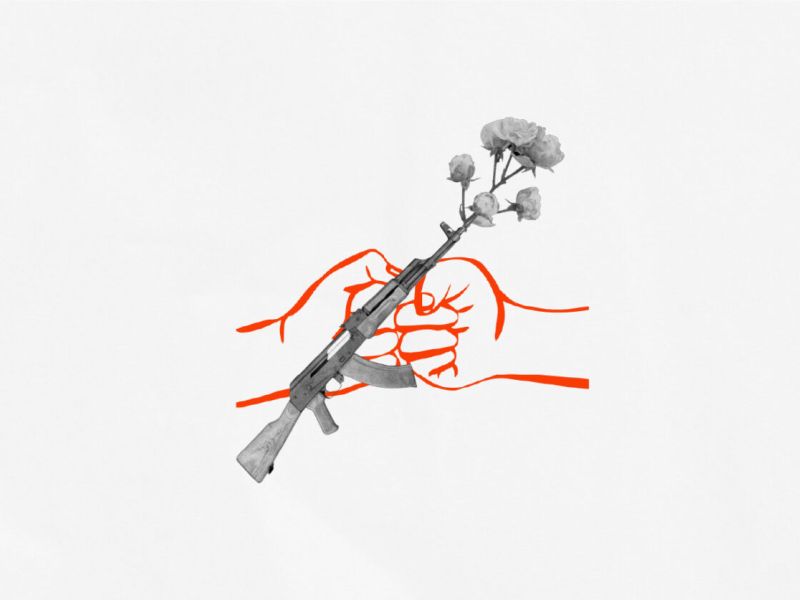
What are the challenges you and your colleagues face?
"On the one hand, that there is a lot of power imbalance in the world and you have to deal with aggressors. You sometimes have people who take advantage of the vulnerability of weak societies to, for example, get raw materials cheaply, take power or open smuggling routes. That's where civilians suffer. A lot of armed conflict in fragile and vulnerable countries is related to economic interests and short-term interests of certain groups. I sometimes make the comparison with mafia gangs.
That makes it difficult for us because it makes it dangerous for the people on the ground who are trying to work for peace there. I also think it's important to point out that this insecurity is only getting worse right now. The violence against activists, whether they are environmentalists or human rights activists, that violence is increasing in the world. This also goes hand in hand with increased conservatism, which puts women in particular and organizations fighting for equal rights for women under a lot of pressure. That is a very big concern for us, especially for our partners in those countries, who really only want to make peace but who themselves become the target.
On the one hand, that there is a lot of power imbalance in the world and you have to deal with aggressors. You sometimes have people who take advantage of the vulnerability of weak societies.
But you see this to a different extent in the Netherlands as well. Activists are increasingly being accused of speaking out and standing up and then, for example, being searched at home by police or being monitored online. This is in very slight become again the same trend that you see in other countries much more extreme where people can really be killed."
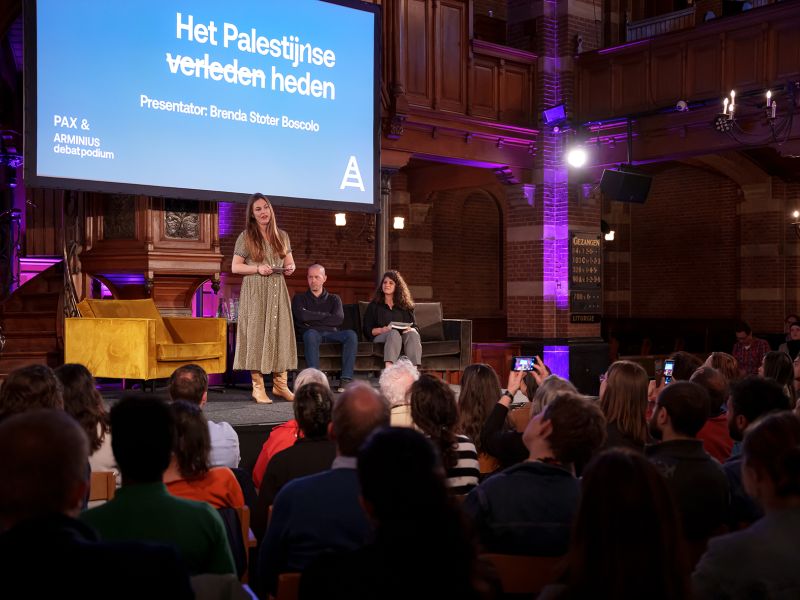
The courage of people you work with is so much greater than the courage of me
What motivates you personally to do this work and commit yourself daily to peace, what or who is your greatest inspiration? But most importantly; how do you maintain courage?
"The courage of people you work with is so much greater than the courage of me. That is a very big inspiration for me. People in Sudan where there are obviously warring factions now, who are still trying to reorganize as citizens and take to the streets every now and then to protest. The first years of my career I worked in a number of war-torn countries, Sierre Leone and Cambodia among others, and there I worked a lot with Buddhist peace activists. That was incredibly helpful to me. Especially that they said, peace starts with yourself and you can spread out. Every person can do that. When I joined PAX, that was also exactly the maxim of PAX. I didn't know that when I applied for a job, but when I talked to people later in the company it often came back to me: everyone can do their bit. You may not be able to bring about world peace right away, but if you have already solved a conflict in your own environment, then you have already contributed to peace. Peace is doesn’t always have to be big, also small acctions count."
In what ways can people reading this actively contribute themselves to peace and the passing of democratic values?
"The elections are coming up. Think about who you are voting for, I want to say. Especially to young people, I want to say; go and vote. And inform yourself. Right now I would consider that a very big contribution. And besides that: talk to people. If you meet someone who is very different from you, go and be curious. Instead of immediately having a judgment and excluding someone. Go explore and try to find three things in common. Then you will always see that after 15 minutes or 30 minutes you share a lot of things even though you are so different."


